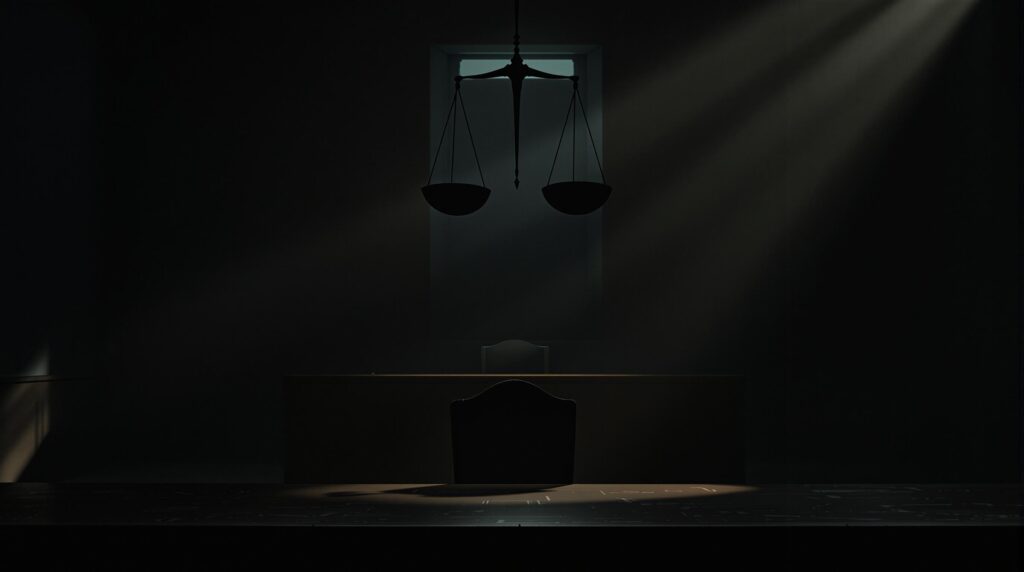On a warm August night in 2023, music fans gathered at Nudieland, a backyard punk concert venue in Minneapolis, excited for an evening celebrating community and creativity. Never did they imagine their safe haven would become a scene of senseless violence, forever altering countless lives. Dominic James Burris, who was just 17 at the time of the horrific incident, has now been sentenced to 23 years in prison for his role in this devastating mass shooting, marking a pivotal moment of accountability and justice.
A Night of Celebration Turned into Horror: Targeted Violence Against the LGBTQ+ Community
Behind the cheerful atmosphere and community spirit, Nudieland offered more than just music; it provided a safe space for the LGBTQ+ community and their allies. Tragically, this sanctuary became the target of profound ignorance and brutality when Dominic Burris and his accomplice, Cyrell Boyd, opened fire, leaving beloved local musician August Golden dead and six other innocent survivors with both physical and emotional scars.
According to eyewitness accounts, Burris and Boyd—initially socializing amicably with the crowd—grew hostile when their advances were rebuffed. Their friendliness devolved rapidly into verbal homophobic abuse, tarnishing the night with hate-filled slurs before culminating in gunfire. Such a targeted assault not only wreaks irreparable trauma on victims but also serves as an unsettling reminder of the violence many LGBTQ+ individuals continually face.
The justified outrage and sadness following the incident were clearly expressed by Hennepin County Attorney Mary Moriarty, who labeled the tragedy “a senseless attack” that inflicted “immeasurable harm” on both survivors and their families. Through her statement, Moriarty highlighted not just the immediate impact, but the admission of community wounds, underscoring the urgency of long-term support for victims and sustained advocacy against hateful violence.
Sentencing Struggles: Balancing Accountability and Rehabilitation
Navigating justice in cases involving youthful offenders like Dominic Burris presents particular complexities, where accountability must be weighed alongside potential for rehabilitation. Burris, having faced adult charges, pleaded guilty last January to second-degree unpremeditated murder and first-degree assault. His sentencing—23 years behind bars—is structured to include two-thirds in state prison, with the final third under supervised release, ensuring prolonged oversight intended to mitigate opportunities for future harm.
A different path was followed with Burris’s co-defendant, Cyrell Boyd, who accepted a plea deal. Boyd’s agreement includes commitment to a juvenile facility until age 26, followed by five years of probation and an 86-month stayed prison sentence. The starkly differing outcomes raise critical questions about the effectiveness of punishment models pursued and their respective impacts on community healing and individual rehabilitation. As progressive values promote second chances and restorative justice, these contrasted decisions invite necessary contemplation around fairness and the possibility of redemption.
“These events demand tough conversations about not just incarceration, but deeper interventions needed to dismantle the prejudices fueling violence.”
The Broader Impact: Community Solidarity and Continued Advocacy
The Nudieland tragedy extends far beyond the judicial sentences handed down; it signals an ongoing crisis concerning hate crimes against marginalized communities. The LGBTQ+ community, long familiar with the realities of prejudice, continues to confront amplified hostility and violence. However, tragedies like these often illuminate resilience and unity within targeted communities as allies and advocates are galvanized towards action and solidarity.
Recovery for survivors extends well beyond physical injuries. The emotional and mental trauma demands comprehensive community support systems, accessible mental health resources, and sustained societal education against prejudice. Collective advocacy can transform grief and anger into hopeful activism, providing resources for healing and advocacy campaigns aimed at confronting harmful stereotypes and systemic discrimination.
Throughout history—Stonewall, Orlando’s Pulse nightclub, countless acts of solidarity and activism—the LGBTQ+ community has demonstrated remarkable resilience in the face of hate. In Nudieland’s aftermath, Minneapolis has an opportunity and obligation to stand united against centuries-old prejudices, proposing meaningful policy changes increasing hate crime protections, community outreach, and inclusive education programs.
Ultimately, justice cannot end within courthouses or prison cells. It demands active community effort, confronting underlying systemic factors promoting violence and discrimination. Nudieland must not only be remembered for its devastating violence but serve as a call to rigorous advocacy, ensuring safe spaces remain sacred, celebrating diversity, and protecting dignity for future generations.
As Minneapolis continues to heal, the sentences handed down remind everyone of the profound responsibility communities hold—not just prosecuting grave crimes in the aftermath but proactively engaging with younger generations through education and empathy. After all, genuine change requires dedication to democracy, to universal human validity, and to enduringly meaningful justice.

